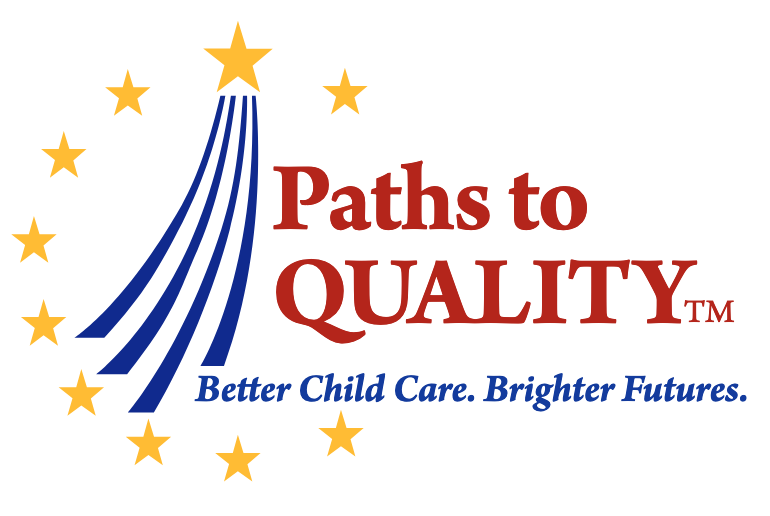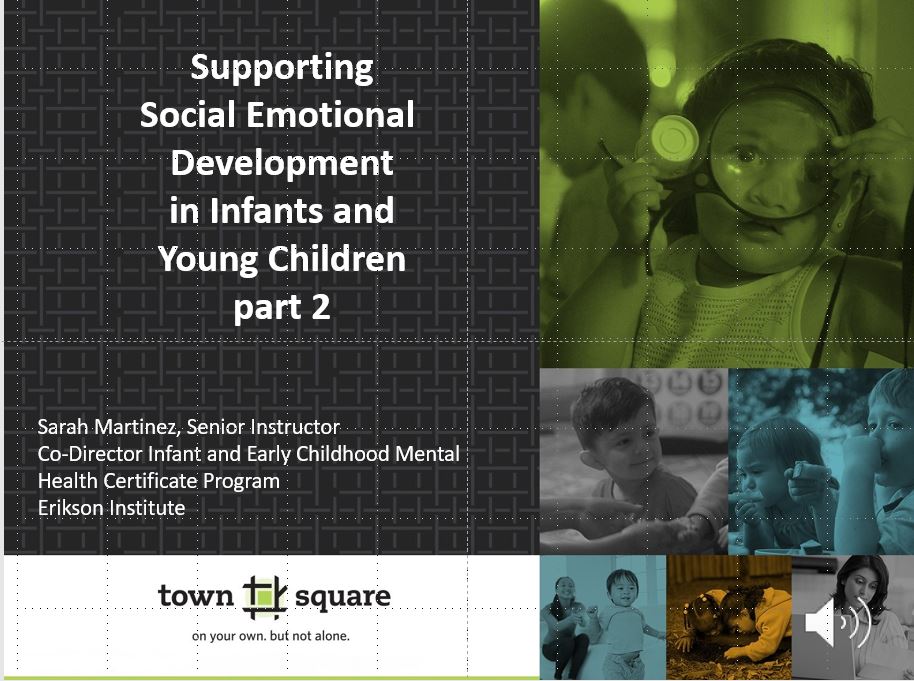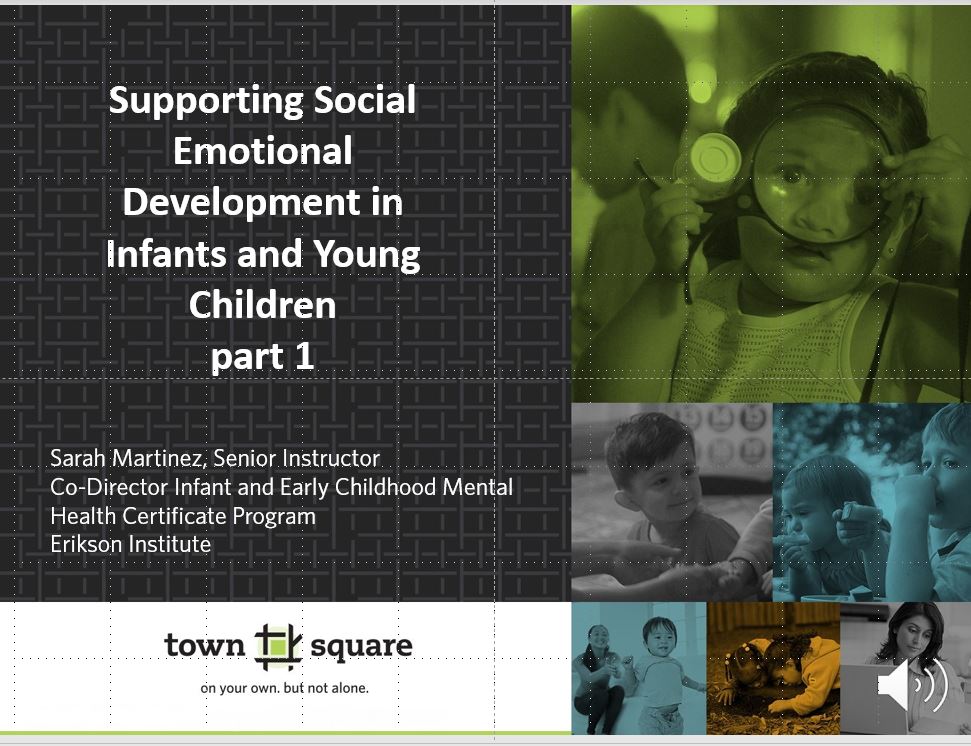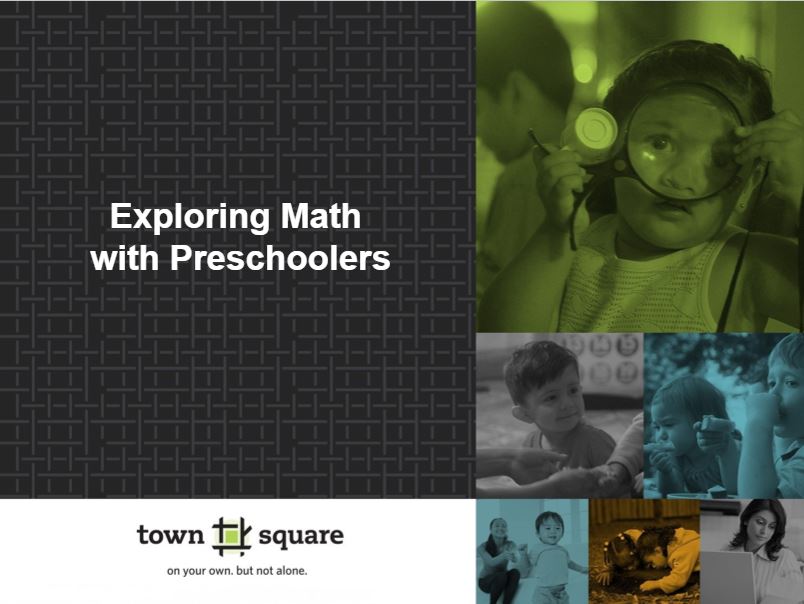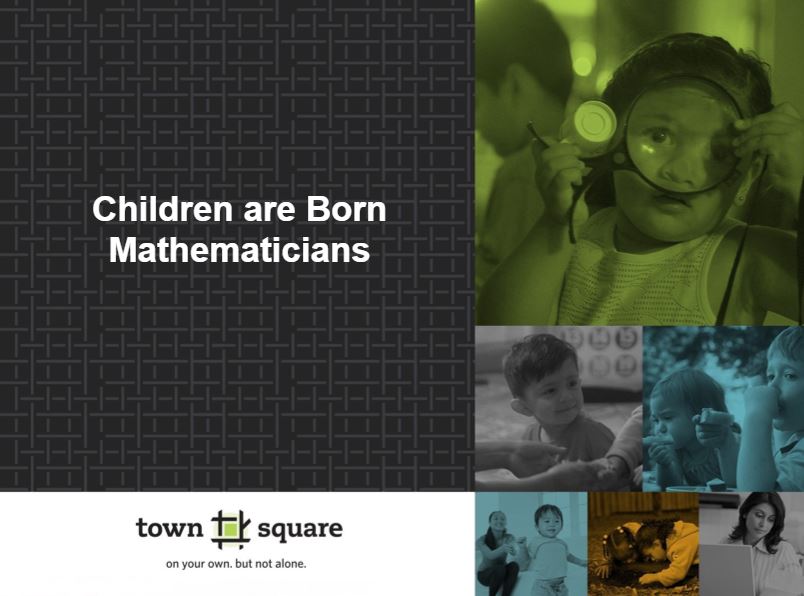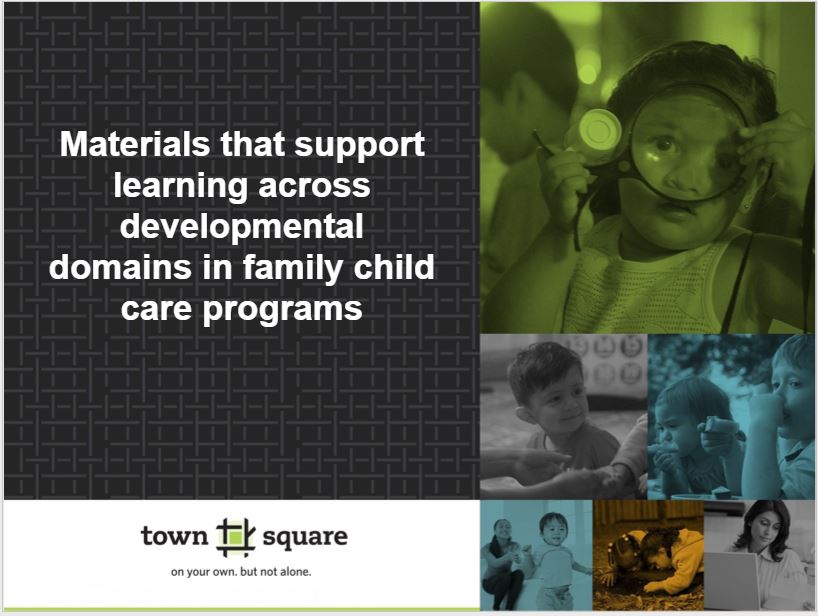In the Paths to Quality Standards for Participation, there are 13 standards that family child care providers must meet to move from level 1 to level 2. One practice states:
Each child feels safe, accepted, and protected. This is supported by daily practices that reinforce respect for people, feelings, ideas, and materials.
What does it mean to feel safe, accepted, and protected? What are daily practices that support children in feeling this way? Paying attention to each child and taking advantage of time to connect, even though this is difficult in group care, is a great start. Especially during caregiving times like feeding and diapering/toileting when children are at their most vulnerable. In the RIE philosophy of infant caregiving, this is called “want something quality time.” When the adult has a goal, but it can be accomplished mutually with the child’s cooperation, and the time can be spent in a pleasant interaction with the child rather than rushed through.
This is in addition to “want nothing quality time,” when adults spend time playing with, talking to, and observing children without another agenda. Helping children feel safe also involves self-reflection. Knowing how to handle children’s challenging behaviors is an ongoing process and requires some self-reflection to ensure that adult responses are compassionate and appropriate and demonstrate to the child that the adult isn’t a threat. It’s easy to forget that adults are many times the size of a young child and can easily feel frightening to them. As Circle of Security says, the adult must choose to be “bigger, stronger, wiser, and kind.”
Respect for ideas is simply listening to children and helping them have discussions together in a way that allows for free expression of thoughts without ridicule.
Respect for materials might be more complicated. One of the greatest frustrations in family child care can be broken materials! But daily practices that can support respect for materials might include helping children choose the right materials for their chosen activity (throwing sponge balls instead of blocks), and teaching and modeling appropriate use of materials such as paintbrushes and markers.
Reflection:
- How can you tell when a child is feeling safe?
- What frequent occurrence is most likely to dysregulate you? Spilled paint? Children squealing? How can you proactively support your own wellness and calm?
“If we are not working on getting better then we are kinda stagnant and not growing … it is better to get in on front end of a program than the tail end so when a new program comes through we try to jump right on that and get our staff excited about it to be leaders.”
“We already knew we were operating at this higher level, why not have the validation from something like Paths to QUALITY, so that it was more than just us saying we are a strong program but having Paths to QUALITY backing us up as well.”
“I live in a low income area and I have had so many times since I started that I have had interviews set up with parents and I get no reason why they don’t show up. I wonder if some of them just figured out where I’m at and they won’t come. I’ve had someone say that on the phone one time – I know where that’s at. They don’t like the area…I thought it would give me some credibility.”
“I think we would like to get some recognition and also about what we do and maybe in return parents will be calling us and saying “oh, you are this level, we appreciate what you are doing so that is why I want my child to come to you.”
“For me, I joined PTQ because parents are looking at all types of daycares and if you want to stand out, you have to do something to stand out. Participating in whatever you can,
accreditation, whatever. It gives the parents a little something more to look at than just someone watching their kids. That this is what they do, this is their profession, they want to stand out with everything and with PTQ that helps us better our programs and our children so that it is beneficial to us and our programs.”
“…I like that you do get the benefits of moving up, leveling up and you do get that bonus where you get to go through the catalog because we run on peanuts trying to dish out for nutritional foods and things. We don’t have a lot of money to spend on the kids and that little incentive is good too. So it’s nice.”
Paths to QUALITY™ connects professionals like you with the tools and support needed to create high quality learning environments for children. As an early childhood or youth professional, you work hard to ensure that the children in your care are safe, healthy and learning. You play a critical role in children’s ability to succeed. By providing high quality care and education, you are demonstrating your commitment to these children and their long-term success. You are making sure that each child is ready for school and prepared for life, and Paths to QUALITY™ wants to recognize and reward you for that.
Brighter Futures Indiana Paths to Quality
Research shows that high quality early childhood programs prepare children for future success in school, work and life. From birth through age 5 is the most important time for growth of the human brain. A child’s brain develops in response to the child’s experiences by building neurological networks in reaction to the environment.
A child’s experiences in a child care program can significantly contribute to that brain development and the future success of the child. High quality child care programs are essential, not only to Hoosier children, but also to their families and to the communities in which they live. Parents need stable, high quality care in order to be productive at work. They count on their child care provider to ensure that their child is safe, healthy and learning during those hours they must be at work. Our school systems need children who are entering school prepared and ready to succeed. Businesses need a high quality work force both now and in the future. In fact, studies have shown that high quality early childhood programs increase the graduation rate, reduce the future crime rate and can save up to sixteen dollars for every one dollar invested. High quality child care programs are essential to everyone.
In order to improve the quality of child care programs, states across the nation are using Quality Rating and Improvement Systems, such as the one here in Indiana, Paths to QUALITY™. Quality Rating and Improvement Systems assess the quality of care within a program, work to improve that quality level, and give families an easy to recognize symbol that makes the difficult decision of choosing child care easier. These systems also provide an accountability measure for funding and create an alignment between licensing, subsidy and quality across child care, Head Start and the Department of Education’s early learning guidelines.
Paths to QUALITY™ gives families an easy to recognize tool for selecting a child care program. Families can look for the Paths to QUALITY™ logo to determine what level their provider has achieved. Each level builds on the foundation of the previous one, resulting in significant quality improvements at each stage and in national accreditation at the highest level. The system validates child care programs for ongoing efforts to achieve higher standards of quality and provides incentives and awards for success. The four levels address:
- Level One: Health and safety needs of children met
- Level Two: Environment supports children’s learning
- Level Three: Planned curriculum guides child development and school readiness
- Level Four: National accreditation (the highest indicator of quality) is achieved
For more information on Paths to QUALITY™, please visit http://www.childcareindiana.org.
Town Square Research to Practice Statements offer information from theory and research with examples and suggestions for what it means in your work with children.

Town Square Research to Practice: Using Technology as a Tool to Support Learning and Development
In this module, family childcare providers will explore the importance creating an environment that promotes mutual kindness and respect and supports children’s capacity to self-regulate and how to respond to behaviors that challenge our skills and abilities.
Town Square Indiana modules can be found in Indiana Learning Paths. Please follow the link below to log into your I-lead account and click on “Start Your Indiana Learning Path”. Once in Indiana Learning Paths please search for:
Town Square – Supporting Social Emotional Development in Infants and Young Children part 2
In this module, family childcare providers will explore the importance of social emotional development in young children and how having a strong connection between a caregiver and a child can facilitate this development.
Town Square Indiana modules can be found in Indiana Learning Paths. Please follow the link below to log into your I-lead account and click on “Start Your Indiana Learning Path”. Once in Indiana Learning Paths please search for:
Town Square – Supporting Social Emotional Development in Infants and Young Children
In this module, explore big ideas of early math and think about how adults can engage preschoolers in the math all around them.
Town Square Indiana modules can be found in Indiana Learning Paths. Please follow the link below to log into your I-lead account and click on “Start Your Indiana Learning Path”. Once in Indiana Learning Paths please search for:
Town Square Exploring Math with Preschoolers
In this module, explore precursor math concepts and find out how adults can build on babies’ innate mathematical thinking so that they are ready to learn about sets and numbers.
Town Square Indiana modules can be found in Indiana Learning Paths. Please follow the link below to log into your I-lead account and click on “Start Your Indiana Learning Path”. Once in Indiana Learning Paths please search for:
Town Square Children are Born Mathematicians
In this module family child care providers will explore the idea of open-ended materials and the ways that children can learn and develop across social and emotional, physical, and cognitive domains through play and exploration. Intentional planning and scaffolding are emphasized as essential in supporting children’s growth and learning through materials. Resources for organizing and planning open-ended materials explorations in a family child care program are provided in the module.
Town Square Indiana modules can be found in Indiana Learning Paths. Please follow the link below to log into your I-lead account and click on “Start Your Indiana Learning Path”. Once in Indiana Learning Paths please search for:
Town Square Materials that support learning across developmental domains in family child care programs

